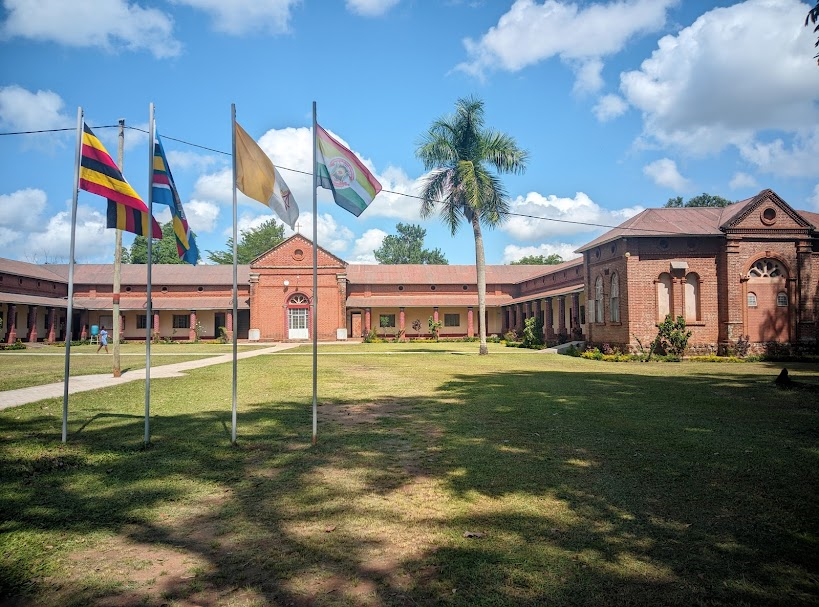TOWARDS THE BIRTH OF A UNIVERSITY - A DECADE OF SERVICE AND HOPE
The founding of the University of the Sacred Heart Gulu (USHG) traces its origins to a moment of deep pastoral reflection and prophetic vision. Ten years ago, amidst the echoes of post-war recovery in Northern Uganda, Most Rev. Dr. John Baptist Odama, then Archbishop of Gulu, led the Archdiocese in an audacious and hope-filled journey to respond to the wounds of a traumatized society.
Inspired by the conviction that healing and integral human development must be at the core of higher education, the Archdiocese of Gulu became the cradle for this noble vision. In close consultation with partners, educationists, religious leaders, and community voices, the foundation for USHG was laid-not merely as an institution of academic learning, but as a beacon of healing, reconciliation, and transformation.
REVISITING CONTEXT AND PURPOSE
The early 2000s had left Northern Uganda ravaged by over two decades of conflict, with lasting scars on individuals, families, and communities. It was in this aftermath-marked by deep psychological trauma, broken societal structures, and compromised human dignity-that the idea of a university rooted in healing began to take shape.
Even beyond the region, Uganda and its neighboring countries-South Sudan, Congo, Rwanda-have all faced the devastations of conflict. The call for peace, justice, and healing remains as urgent today as it was then. As the university marks a decade, we affirm: healin is still needed, and education remains one of the most powerful tools in the service peace.
A DECADE OF PURPOSEFUL IMPACT
Since its founding in 2016, USHG has stayed true to its mission: to contribute to personal and social healing, growth, and holistic development. Through its academic programs, outreach initiatives, and partnerships, USHG has become more than an institution, it is a movement for healing and transformation.
With the motto. "Health of Mind, Heart and Body for Integral Development," the university has centered the dignity of the human person in every endeavor. The foundational philosophy-drawn from John 10:10, "I have come that they may have life. and have it to the full"-remains the compass guiding all operations. At USHG, education is not limited to acquiring information; it is a process of formation, of shaping minds, healing hearts, and preparing hands to serve.
EDUCATION AS A HEALING MISSION
From its first days, USHG made deliberate choices to reflect its mission in action:
All students go through a Foundation Program that includes Christian ethics, trauma healing,
peacebuilding, environmental stewardship, and digital literacy.
Community service is integral-students and staff learn with and from the community,
engaging in real-world challenges and contributing to social transformation.
Holistic program design ensures that every discipline-be it business, agriculture, psychology,
or theology-contributes to the building of a just, peaceful, and healthy society.
These choices have not only shaped a unique identity for USHG, but have also produced graduates
who are conscious change agents, committed to justice, healing, and responsible citizenship.
SHORT-TERM INTERVENTIONS, LONG-TERM TRANSFORMATION
Through targeted outreach programs, individual and community wellbeing. USHG has made visible contributions to Whether through counseling services, youth empowerment projects, social enterprise incubation, or conflict mediation initiatives-the university has consistently shown that education can be a tool for both relief and renewal. Policy engagement have started to shape More significantly, USHG's research and national conversations on education, peacebuilding, and development-particularly within faith-based and post-conflict contexts. Its presence has amplified the voice of Northern Uganda on the national academic and social landscape
INSTITUTIONAL GOVERNANCE & LEADERSHIP
The University of the Sacred Heart Gulu (USHG) operates under the guidance of a functional University Council, whose members are appointed by the Board of Trustees of the Archdiocese of Gulu, in line with the University Statute, Council members serve renewable four-year terms. The first substantive University Council was appointed in December 2015 succeeding the Interim Council that led during the Letter of Interim Authority period (2013-2015). The second University Council served from November 2019 until May 15, 2024, and was followed by the third University Council instituted in May 2024, which continues to provide stability and oversight for the University's development.
Alongside the Council, the University Senate plays a central rale in academic governance. Comprising 17 members (59% male, 41% female), including two student representatives, the Senate is responsible for implementing academic policies, reviewing curricula, and approving new programs. It meets at least three times a year in accordance with University policy.
USHG also boasts a functional University Management structure made up of 19 members (53% male, 47% female), including the Vice Chancellor, Deputy Vice Chancellor, Directors, Deans, and Section Heads. This team is charged with overseeing daily operations, mobilization, and administration. Regular consultations with both staff and students further reinforce an inclusive governance model.

